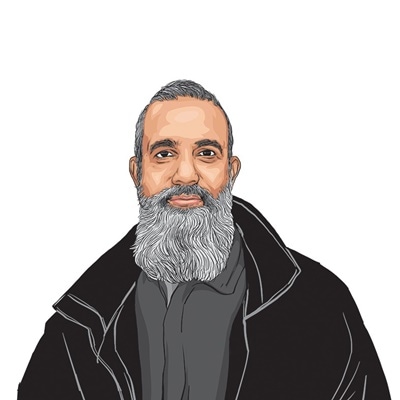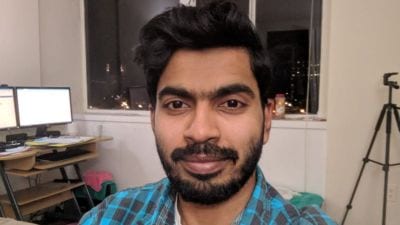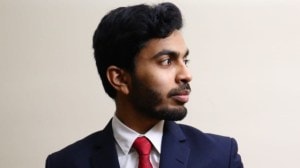IN SRINAGAR, where he spent four of the past five years in house detention, Mirwaiz Umar Farooq cannot be sure if he will be allowed to give his sermon at the city’s Jamia Masjid from one Friday to the next.

He flew back on Monday evening.
The development is significant at several levels. One is that the meetings appear to have been held without any government interference. But more importantly, it was the first time that the Mirwaiz engaged on a legislative issue.
Story continues below this ad
Apart from being Kashmir’s chief priest, the Mirwaiz is the head of the separatist Hurriyat Conference. While he is not a hardliner and remains an advocate for dialogue to resolve issues, a political message has gone home that a separatist outfit is ready to engage with the Centre despite it stonewalling the Valley’s core demands such as the restoration of Article 370.
The Mirwaiz told The Indian Express that his meetings were meant to “build consensus on matters affecting religious practices… since all the laws now apply to J&K”. “The Waqf issue is a serious matter for the Muslims of J&K and the proposed amendments (in the Bill) have caused a lot of concern among the community in all the three regions (Jammu, Kashmir and Ladakh).”
He said that in his meeting with the House panel, he had conveyed his “strong reservations” on the Bill and told the members that “this is against the interests of the Muslim community”. “They are disempowering Muslims further, by trying to bring the Waqf under government control and greatly limiting its autonomy.”
The outcome of the meeting was not “positive”, the Mirwaiz said, with the House panel appearing to be “not serious” and intent on “bulldozing through” the amendments. “It seems likely that despite all efforts, the Waqf Bill will be cleared in Parliament,” he said. “The next option then will be to go to court.”
Story continues below this ad
While in Delhi, the Mirwaiz visited the Tablighi Markaz at Nizamuddin and met the Ameer of the Tablighi Jamaat, Maulana Saad Kandhalvi. During the height of the Covid epidemic, the Tablighi Jamaat was the target of a communal campaign as a “super spreader” of the virus.
The Mirwaiz also interacted with Jamiat Ulama-i-Hind president Maulana Mehmood Madani, Delhi Jama Masjid Shahi Imam Syed Ahmad Bukhari, and Mufti Mukarram Ahmed of the Fatehpuri Masjid.
The Hurriyat leader said these meetings were “constructive”. “The Waqf issue concerns every Muslim in the country. The broader understanding among the leaders that I met is that different Muslim bodies across the country will have to continue their discussions on the course of action regarding the Bill.”
The Mirwaiz said he also wanted to meet Bihar Chief Minister Nitish Kumar and Andhra Pradesh CM Chandrababu Naidu, but couldn’t. They head parties – the JD(U) and TDP, respectively – which are allies of the BJP at the Centre, and crucial to the latter’s majority in Parliament. Earlier, NC MP Ruhullah who also met the Mirwaiz in Delhi had said he had reached out to the two parties as both Bihar and Andhra have large Muslim populations.
Story continues below this ad
Ruhullah, whose relations with the NC leadership have lately been strained, had told The Indian Express that his meeting with the Mirwaiz – again a rare public interaction between a separatist and a mainstream leader – was “essentially to discuss and develop a broader consensus on the Waqf amendments”. He added: “Other issues do come up during meetings and they were also discussed on the sidelines.”
The Mirwaiz also met certain civil society activists where, he said, the Kashmir issue, the Valley’s political situation, economics and development came up.
One of the most crucial of these was his meeting with the J-K Peace Forum, an organisation of Kashmiri Pandits that called on him. The two parties said they had agreed to form a committee to “bridge the gap” between Kashmiri Muslims and Pandits.
“I have been talking about their return to the Valley for many years,” the Mirwaiz said. “No Kashmiri Muslim thinks that the Pandits should not return to their homes.”
Story continues below this ad
Satish Mahaldar, the president of the J-K Peace Forum, described their meeting as “wonderful” and one that could help bridge the gap. “The fact is that there is mistrust on both sides,” Mahaldar told The Indian Express. “Our first job is to build trust, to create a social fabric where we freely discuss and interact.” –
Mahaldar said the Mirwaiz acknowledged that the Kashmiri Pandits had suffered, just like their Muslim counterparts in the Valley. “He said the majority community feels incomplete without the Kashmiri Pandit. We discussed the return of Kashmiri Pandits. We agreed to form a committee. It is a good beginning.”

































